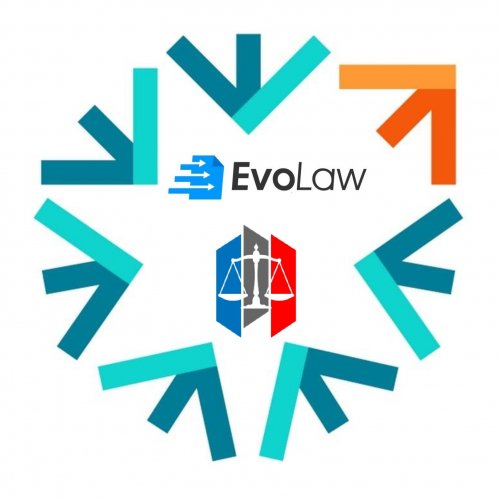Best Communications & Media Law Lawyers in El Salvador
Share your needs with us, get contacted by law firms.
Free. Takes 2 min.
Or refine your search by selecting a city:
List of the best lawyers in El Salvador
About Communications & Media Law in El Salvador
Communications & Media Law in El Salvador is a dynamic field that covers the regulation of television, radio, internet, and telecommunications services. The legal framework seeks to balance freedom of expression with privacy rights and public interest. Regulations are enforced to ensure fair competition, prevent monopolies, protect intellectual property, and regulate content to prevent harmful or misleading information.
Why You May Need a Lawyer
Individuals and organizations may need legal assistance in Communications & Media Law for various reasons. Common situations include disputes over content rights or intellectual property, navigating broadcasting regulations, addressing censorship issues, negotiating contracts between media companies, and handling defamation claims. Legal advice can also be crucial when dealing with privacy matters related to the collection and use of personal data.
Local Laws Overview
The legal framework for Communications & Media Law in El Salvador is primarily governed by the Telecommunications Law, which outlines the operational and regulatory standards for communication services. Content restrictions are in place to protect citizens from harmful or misleading information, and there are strict rules regarding intellectual property rights. The enforcement of these laws is overseen by the Superintendency of Electricity and Telecommunications (SIGET), which authorizes licenses and monitors compliance.
Frequently Asked Questions
What is the role of SIGET in media regulation?
The Superintendency of Electricity and Telecommunications (SIGET) is responsible for licensing broadcasters, monitoring compliance with telecommunications standards, and enforcing regulations to ensure fair competition and consumer protection.
Can content be censored under Salvadoran Law?
Yes, content can be censored if it is deemed harmful, misleading, or violative of public order and morality. Regulations aim to balance freedom of expression with public safety and ethical standards.
How are intellectual property rights protected in media law?
Intellectual property rights in media are protected under the Salvadoran Intellectual Property Law, which provides a legal framework for creators to safeguard their works and control their distribution and reproduction.
Are there specific laws for internet content regulation?
While there are general regulations that apply to all media, specific laws also govern internet content to protect users' personal data and prevent cybercrime.
What should I do if I receive a defamation claim?
If you receive a defamation claim, consulting a lawyer experienced in Communications & Media Law is critical. They can help you assess the claim's validity and develop a defense strategy.
How is data privacy handled under Salvadoran law?
Data privacy is governed by laws that require companies to obtain explicit consent from users before collecting or processing personal data and mandate that this data be securely handled and stored.
Can foreign media companies operate in El Salvador?
Yes, foreign media companies can operate in El Salvador, but they must comply with local laws, including obtaining the necessary licenses and observance of content and competition laws.
Are there any media-specific labor laws?
There are no media-specific labor laws. However, general labor laws apply, including regulations on contracts, working conditions, and employee rights, which media companies must follow.
What steps should be taken to broadcast a new radio or TV channel?
A new broadcaster must apply for a license through SIGET, proving their capability to provide quality service and adherence to local content and technical standards.
Who enforces breaches of media licensing and regulations?
SIGET enforces breaches, and they have the authority to impose fines, revoke licenses, or take other actions to ensure compliance with media laws and regulations.
Additional Resources
If you need more information, consider reaching out to governmental bodies like SIGET or international organizations focused on communications law. Legal libraries or the Chamber of Commerce in El Salvador may also have useful resources.
Next Steps
If you require legal assistance in Communications & Media Law, it's advisable to consult with a lawyer specializing in this field. They can provide expert advice, represent you in legal matters, and help you navigate regulatory requirements. Begin by compiling any pertinent information and documentation related to your case before seeking professional help.
Lawzana helps you find the best lawyers and law firms in El Salvador through a curated and pre-screened list of qualified legal professionals. Our platform offers rankings and detailed profiles of attorneys and law firms, allowing you to compare based on practice areas, including Communications & Media Law, experience, and client feedback.
Each profile includes a description of the firm's areas of practice, client reviews, team members and partners, year of establishment, spoken languages, office locations, contact information, social media presence, and any published articles or resources. Most firms on our platform speak English and are experienced in both local and international legal matters.
Get a quote from top-rated law firms in El Salvador — quickly, securely, and without unnecessary hassle.
Disclaimer:
The information provided on this page is for general informational purposes only and does not constitute legal advice. While we strive to ensure the accuracy and relevance of the content, legal information may change over time, and interpretations of the law can vary. You should always consult with a qualified legal professional for advice specific to your situation.
We disclaim all liability for actions taken or not taken based on the content of this page. If you believe any information is incorrect or outdated, please contact us, and we will review and update it where appropriate.
Browse communications & media law law firms by city in El Salvador
Refine your search by selecting a city.









